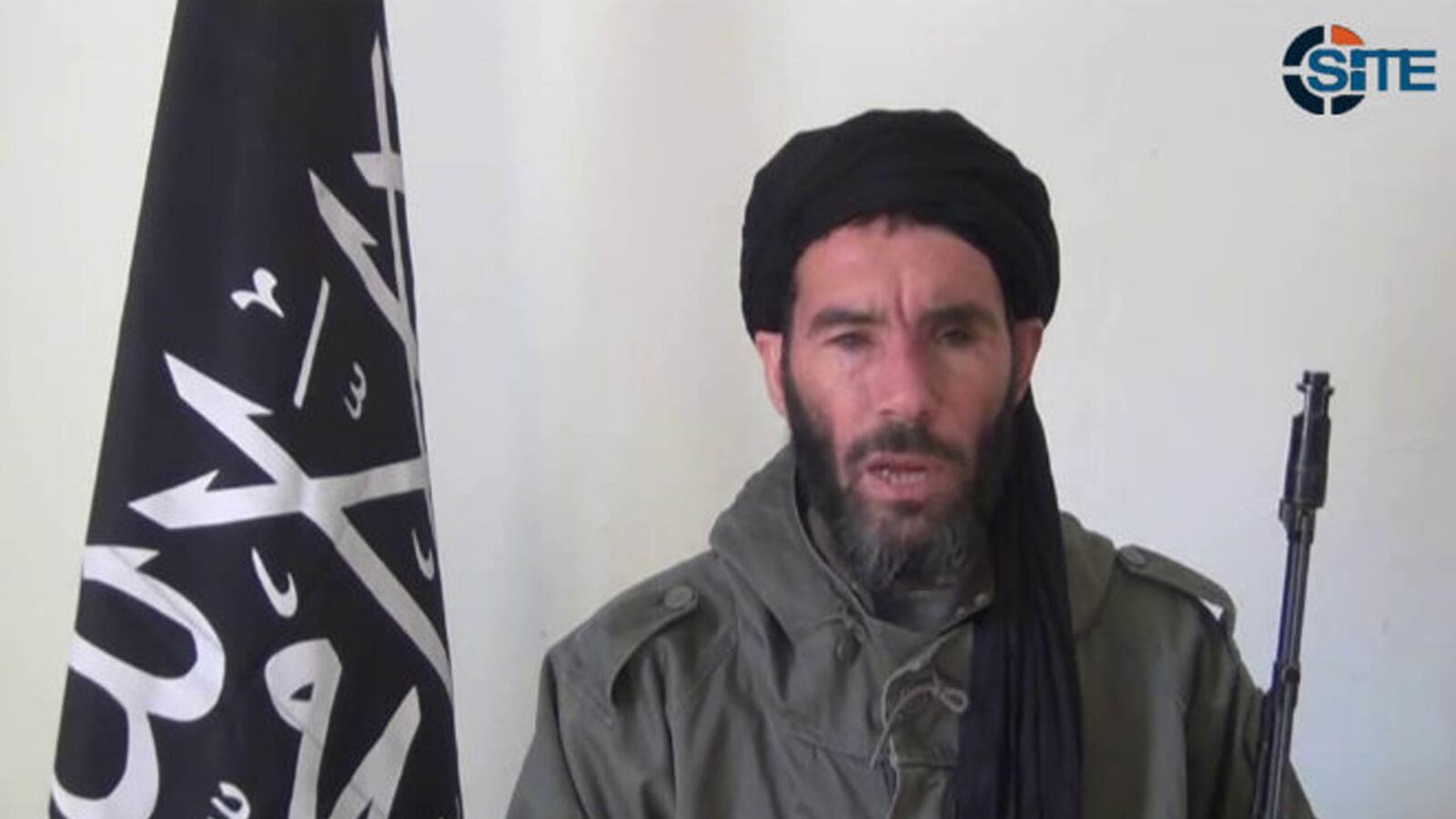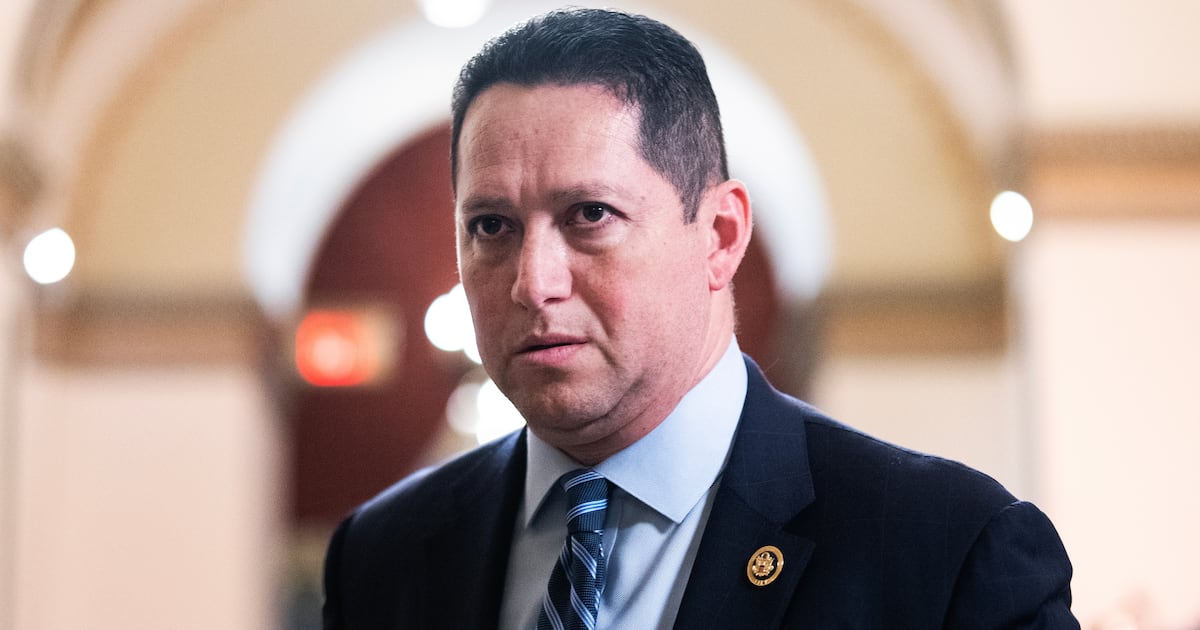At least half-a-dozen Western oil workers including Americans held hostage since Wednesday by heavily armed al-Qaeda-linked Islamists at a natural gas complex in eastern Algeria died today when Algerian government forces mounted an attack to free them, say the militants holding them.
Amid confusing reports, the casualties at the sprawling Amenas gas complex 800 miles southeast of Algiers are being put at anything from six hostages to 34, including Algerian workers. Several captors, including the kidnappers’ ground leader, Abou El Baraa, are said to have died, too, in the mission mounted by Algerian security forces that involved low-flying helicopter assaults.

A private security source working for oil companies in Algeria told The Daily Beast the operation to retake the facility was “messy.” He added: “The Algerian soldiers were firing pretty indiscriminately. This wasn’t a surgical operation.”
A spokesman for the British Foreign Office confirmed an “ongoing military operation” against the hostage takers but couldn’t verify whether there’d been casualties. Nor would he comment on reports that about 15 foreign hostages had escaped earlier from the gas field near the Libyan border that’s run jointly by BP, the Norwegian company Statoil, and Algeria’s state oil agency.
The Algerian operation mounted to break the Sahara Desert siege came as security experts started to pin down the motives behind the seizing of the gas field by militants loyal to the notorious one-eyed Jihadist warlord, Mokhtar Belmokhtar, who is nicknamed variously “The Uncatchable”--he has been reported killed several times--or “Mr. Marlboro” for his involvement in cigarette smuggling that has helped to finance his operations.
Militants seized the facility on Wednesday, saying the attack was in response to France’s military intervention in neighboring Mali, where French Foreign Legionnaires have joined Malian government troops in halting advances by Islamists who have taken over much of northern Mali.
But terrorism analysts say Belmokhtar had more than one objective in mind when he ordered his fighters in a well-planned operation to seize the facility and secure Western hostages, including boosting his own standing among jihadists after he was recently passed over for promotion within al-Qaeda.
An Algerian native with a storied two-decade history of armed militancy, Belmokhtar was one of the leading figures of al-Qaeda in the Islamic Maghreb (AQIM) and commanded a highly effective cell of fighters in north Mali until October, when Yahya Abou El Hamame was appointed over him as AQIM’s “Emir of the Sahel.”
“He has a reputation as an autonomous operator,” says Stephen Ellis of the African Studies Center at the University of Leiden in The Netherlands. “He is well known as going his own way both when it comes to his criminal and smuggling activities and his militancy. In the Sahel the various jihadist groups are very fissiparous. They split and re-form regularly only to split again.”
Some of the differences that cause division are not only connected to disputes over terrorism strategy or ideology. Leaders clash over the spoils that can be made--from ransoms paid for the release of Western hostages to the distribution of profits from smuggling guns, drugs and tobacco.
Following his being passed over for promotion, Belmokhtar left the al-Qaeda franchise to set up his own jihadi outfit, naming it Khaled Abu al-Abbas Brigade or al-Muwaqqi'un bil-Dima (Those Who Sign in Blood).
One of his associates, Oumar Ould Hamaha, told the Associated Press in the autumn that they were leaving al-Qaeda “so that we can better operate in the field...We want to enlarge our zone of operation throughout the entire Sahara, going from Niger through to Chad and Burkina Faso.”
Born in Ghardaia, Algeria, in 1972, Belmokhtar traveled to Afghanistan as a 19-year-old to join training camps run by jihadists, returning in 1992 to his homeland, joining first Algeria's Islamic Armed Group (GIA) then helping to set up the Salafist Group for Preaching and Combat (GSPC) that subsequently merged with al-Qaeda.
Belmokhtar is reported to be in alliance now with another former AQIM fighter Hamadou Ould Khairou, a Mauritanian that U.S. security sources say is involved in the drug trade.
“He has certainly had strained relations with al-Qaeda for years,” says Andrew Black, who wrote a paper on Belmokhtar for the Jamestown Foundation, a Washington DC-based think tank. “But there is a paradox to the man. He can fall out with al-Qaeda but he remains ultimately loyal to it and faithful to the wider cause of jihad.”
Black says above all Belmokhtar is a shrewd operator and deserves his reputation as one of the most daring jihadist-gangster leaders and as one of the leading hostage takers in the Sahara desert. “He has been on the jihadist scene now for two decades and has survived in the Sahel as a terrorist and a criminal and that’s hard thing to do. He’s a real expert at what he does.”
He has been linked to a string of kidnappings of foreigners in North Africa, including the 2003 kidnapping of 32 European tourists. In 2008 he was behind the kidnapping of two Canadians, one of whom was the former U.N. Niger envoy Robert Fowler. They were seized outside Niger's capital, Niamey. “We were frog-marched and thrown into the back of a truck... We began our descent into hell--a 1,000km journey northwards, into the Sahara desert," Fowler told the BBC. “I think I know instinctively what they [the latest hostages captured in Algeria] are going through.”
Belmokhtar’s Saharan activities have been helped by his strong links with local Tuaregs--at least two of his four wives are believed to be Tuareg.
"In my opinion, even if Belmokhtar uses the slogan of the French attack in Mali, this is not his not real intention," said Ely Karmon, a Senior Research Scholar at the Institute for Counter-Terrorism at the Interdisciplinary Center in Herzliya, Israel. "It is motivated by money."
Last month, the Signed-in-Blood brigade warned against the West trying to halt the Islamist takeover of northern Mali. “We will respond forcefully; we promise we will follow you to your homes and you will feel pain and we will attack your interests," warned the group.







